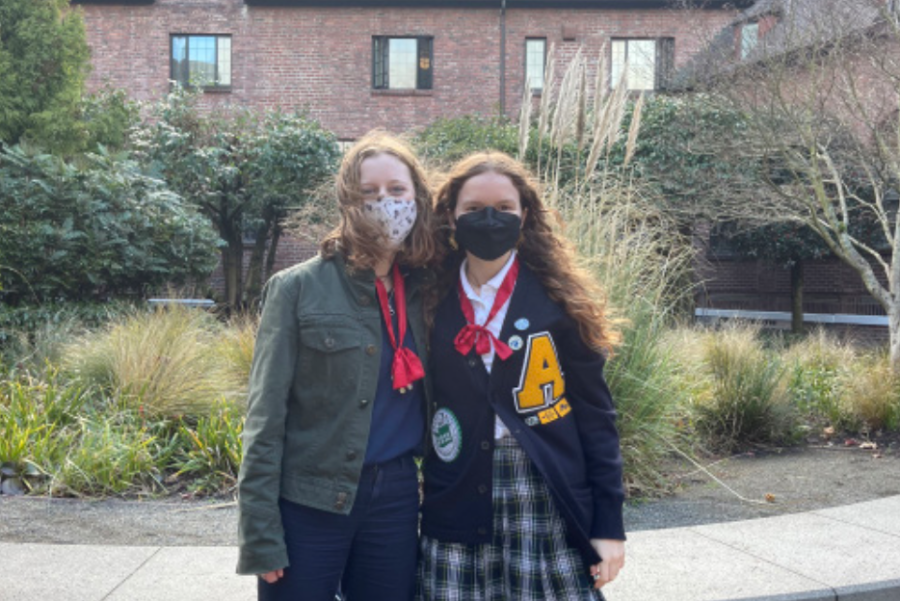photo courtesy of Sofia Guerra
Anna Parrott and Maxine Pendras co-lead Annie Wright School’s Nature Club
The Importance of Recycling Clothes
February 3, 2022
Inkwell interviewed Annie Wright School’s Nature Club on the importance of recycling clothes to help the environment and nature. Inkwell interviewed Maxine Pendras (USG ‘22) and Anna Parrott (USG ‘22), co-presidents of Annie Wright’s Nature Club. Parrot and Pendras showed us what actions damages the environment and some ways to give back.
Inkwell: How do you think recycling clothes helps the environment?
Parrott: I feel that running a circular economy or an economy where the waste products of things that have been consumed are brought back into a system, bringing it to a closed-loop rather than a stream of waste is beneficial to reduce the impact of waste and also the impact of producing new materials. By recycling clothes, you save energy both by reducing the environmental cost of production, as well as the environmental impact of the waste products of the clothing industry.
Pendras: Making new clothes with new materials uses a lot of energy and resources. And the process they use to treat, wash, and dye their clothes is horrible. Recycling helps with that.
Inkwell: What are your views on recycling?
Parrott: I think recycling is not the ideal solution people see it as. A lot of the recycling in the U.S. is sent to third world countries to be processed and often ends up dumped in the ocean, recycled improperly [or] ends up in landfills.
Pendras: Recycling shouldn’t be the solution but more of a last resort. It’s better to not make the waste in the first place but once you have it, it’s better to recycle it than to bury it in the ground.
Inkwell: What’s one way you would help lower greenhouse gas emissions?
Parrott: Advocate[ing for] politicians who support policies that support lowering greenhouse gas emissions is the most effective thing any individual can do to reduce greenhouse gas emissions. Lowering greenhouse gas emissions are large-scale shifts, changing where a country gets its energy from, like if a country gets its energy from coal powerpower, or solar. A lot of the decisions are in the hands of the government, not the people or consumers.
Pendras: A lot of it is a big change, not just what I can do myself. It’s more of big politicians and big business and their emissions being lowered makes the most change. I try to consume less and not use things I don’t need. A lot of energy goes into transporting and making objects. I might not use the object very much, then it ends up in landfills and it’s really unsustainable and very linear.
Inkwell: How do you help the environment by recycling clothes?
Parrott: I have sent clothing to specific clothing recycling brands or groups that will thrift or resell your clothes.
Pendras: I agree with Anna that recycling clothes should not be your first plan. Buying second hand clothes helps, also I donate clothes or resell them. I’ve never really recycled clothes, I probably should but I also don’t throw away that many clothes either.
This piece was originally published in Inkwell’s Fashion Issue.
